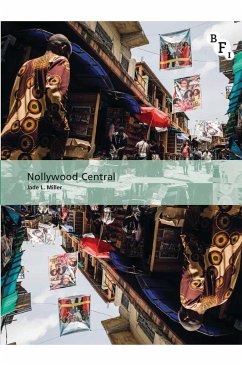Nollywood is often portrayed by the popular press as an unruly industry, with mysteriously fast and cheap production and shadowy distribution networks. In the first overview of Nigeria's burgeoning video film industry, Jade L. Miller reveals that this portrayal is over-simplistic and often untrue. Investigating Nollywood's complete global production and distribution chain, Nollywood Central presents a full portrait of the Nollywood industry as both highly organised and strategically structured. In doing so, it interrogates the position and rise of new cultural industry hubs, demonstrating how a creative industry can emerge, be sustainable and circulate globally even though it exists outside of formal global networks and government-supported infrastructure. Deepening understanding of this prolific industry while at the same time contributing to debates surrounding global flows of culture, this is a critical resource for students and scholars of Media and Communication Studies, Film Studies, Television Studies and African Studies.
This is a book of outmost significance for the understanding of the cultural industries in the context of globalization. Against the simplistic perception of a Hollywood-center world of audiovisual production, it shows how cultural, economic, and institutional specificity shape the production and distribution process of movies in Africa, drawing key lessons for other regions. It should be mandatory reading for students and professionals of communication and cultural studies. University of Southern California Manuel Castells








